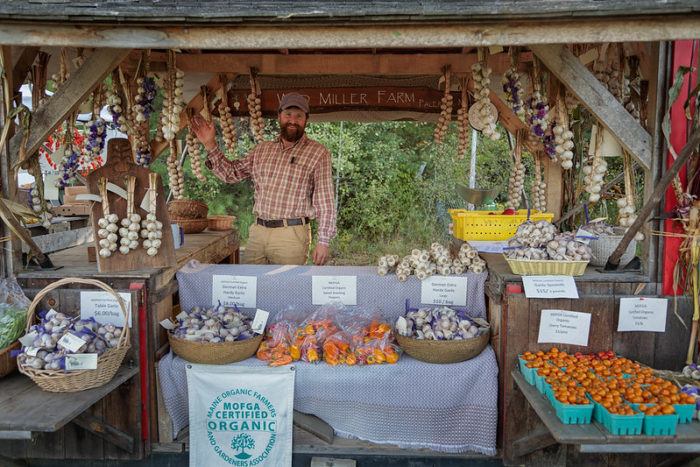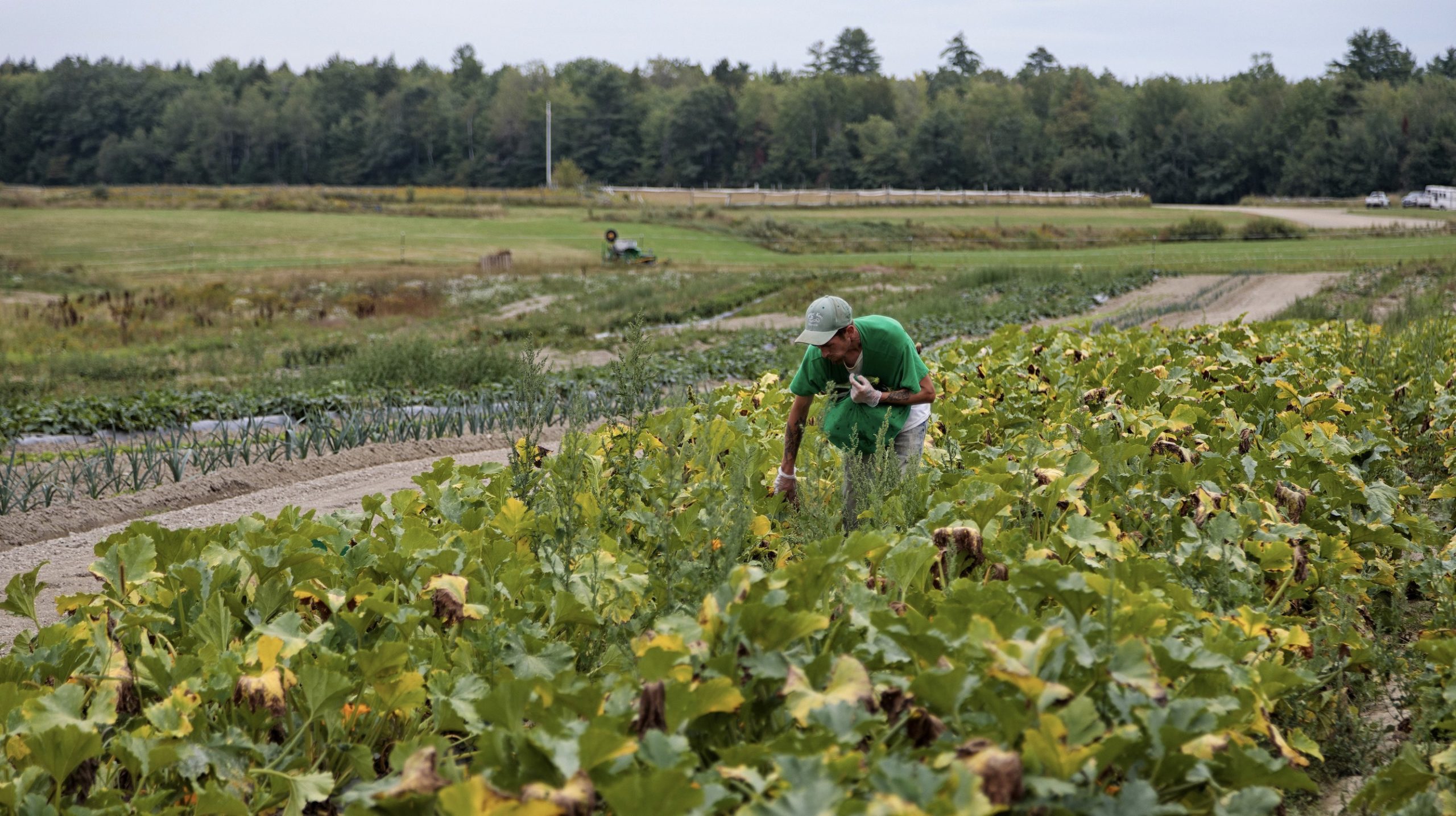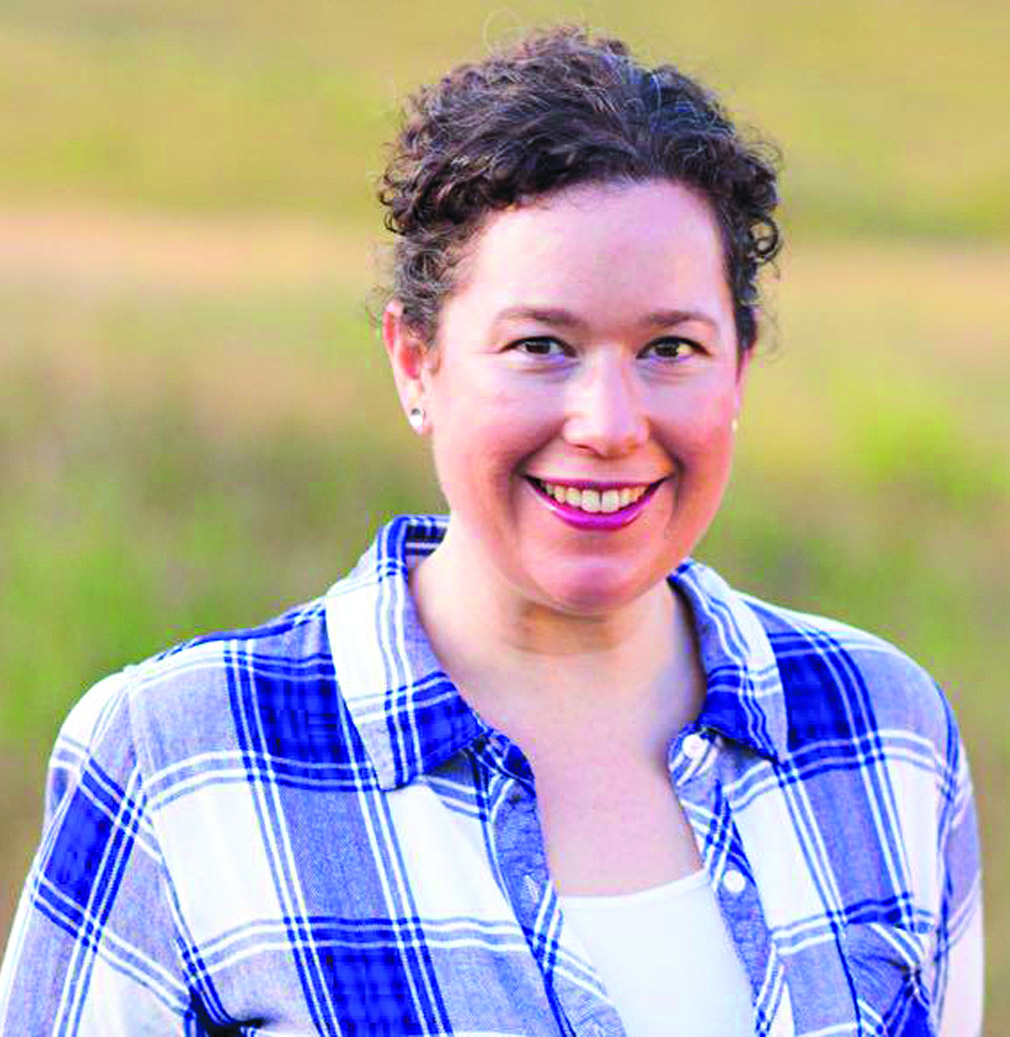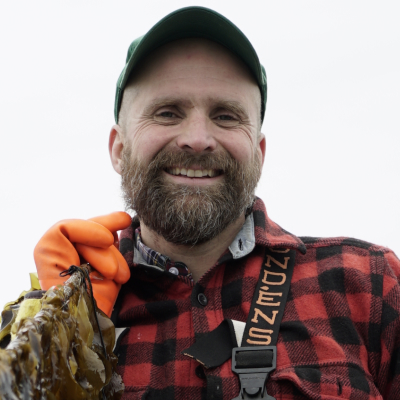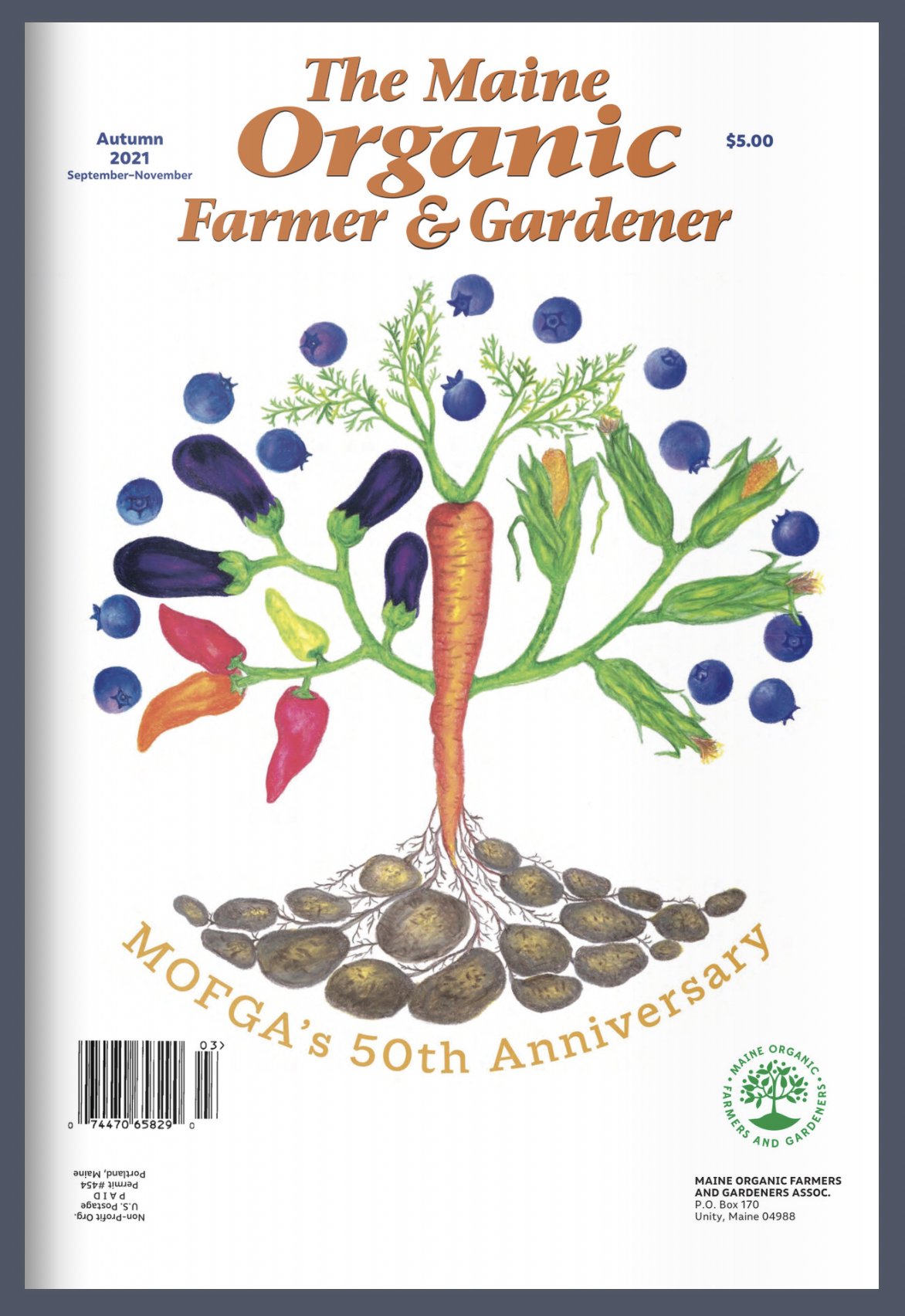
As the largest and oldest (this year marks its semicentennial) statewide organic organization in the U.S., the Maine Organic Farmers and Gardeners Association (MOFGA) is working to create a food system that is healthy and equitable for all. Through education, training and advocacy, MOFGA is cultivating soil that sequesters carbon; supporting a more biodiverse environment; helping farmers thrive; making local, organic food more available; and building sustainable communities. Their organic certification subsidiary certifies more than 500 farms and producers, and represents nearly 7% of Maine’s farms, 30% of the state’s dairies, and $90-plus million in organic product sales. MOFGA also just published a new book The Organic Farming Revolution: Past, Present, Future, which explores their 50-year journey leading the organic movement, and the challenges as well as opportunities that lie ahead. —Charlotte DeFazio
MOFGA started its organic certification of farms in 1972. How does the process compare now? How have standards changed?
MOFGA certified its first organic farm standards following Rodale Organic Garden certification guidelines. Twenty-six farms were certified that first year. In those early days, committees worked on organic standards and met to discuss applications and grant certification as appropriate. The passage of the Organic Foods Production Act (OFPA) in 1990 sought to create a uniform national standard for organic producers and OFPA went into effect in 2002. MOFGA staff worked at the national level at this time to help craft the standards and in 2002, MOFGA Certification Services LLC formed to provide USDA-accredited organic certification services to Maine farmers and food processors. While the organic standards have changed since that time, the primary shift from an organizational perspective was creating the LLC to separate MOFGA’s regulatory role from our technical assistance to farmers and food producers as required to prevent conflicts of interest.
One goal of the uniform national standard was to ensure consistency across states and certifiers. In the years since OFPA took effect, MOFGA’s interpretation of the rules hasn’t changed that much in that we believe the principles of organic agriculture—to “feed the soil, not the plant” and that the soil is the foundation of organic food production—remain the same. Unfortunately, some certifying agencies and USDA have not held to this interpretation and are allowing hydroponic production; this is one of our current policy priorities.
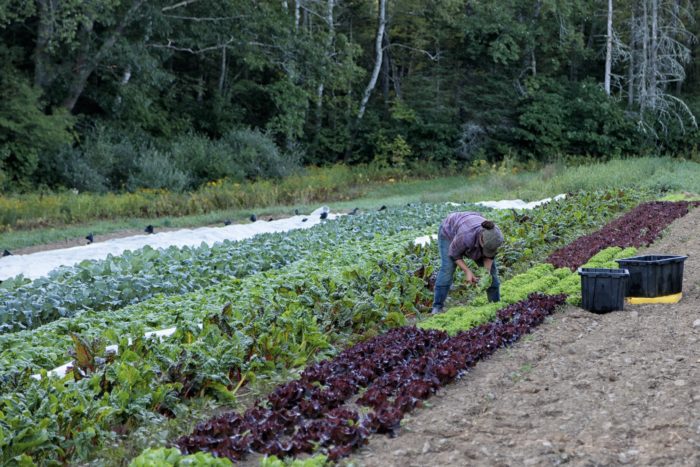
How can consumers walking into a grocery store differentiate between all the greenwashing and uses of the word “organic?”
Any agricultural producer selling in a grocery store must be certified organic in order to market products as organic in that setting. At farmers’ markets and farm stands the regulation is the same for anyone making over $5,000 annually and making an “organic” claim. Unlike other commonly observed labels like “natural,” “sustainable,” “local,” “no-spray” and “humane,” the word “organic” has a set of rules and regulations, as well as annual inspection processes to ensure producers are complying with the standards.
Organic refers to an agricultural system that is founded on the natural world. Organic farmers are stewards of the land and work to build soil, promote ecological balance and encourage biodiversity. Growing and eating organic food supports human and environmental health while fostering thriving local economies. Organic production:
- Reduces the amount of toxic chemicals in our environment and in our bodies
- Excludes genetically modified organisms (GMOs)
- Promotes humane production of livestock, without synthetic antibiotics, added growth hormones or GMO feed
- Preserves pollinator habitat, promotes biodiversity and builds healthy soil
Consumers looking for the gold standard in agricultural products should seek out those that are certified organic and ask their grocers to support these growers.
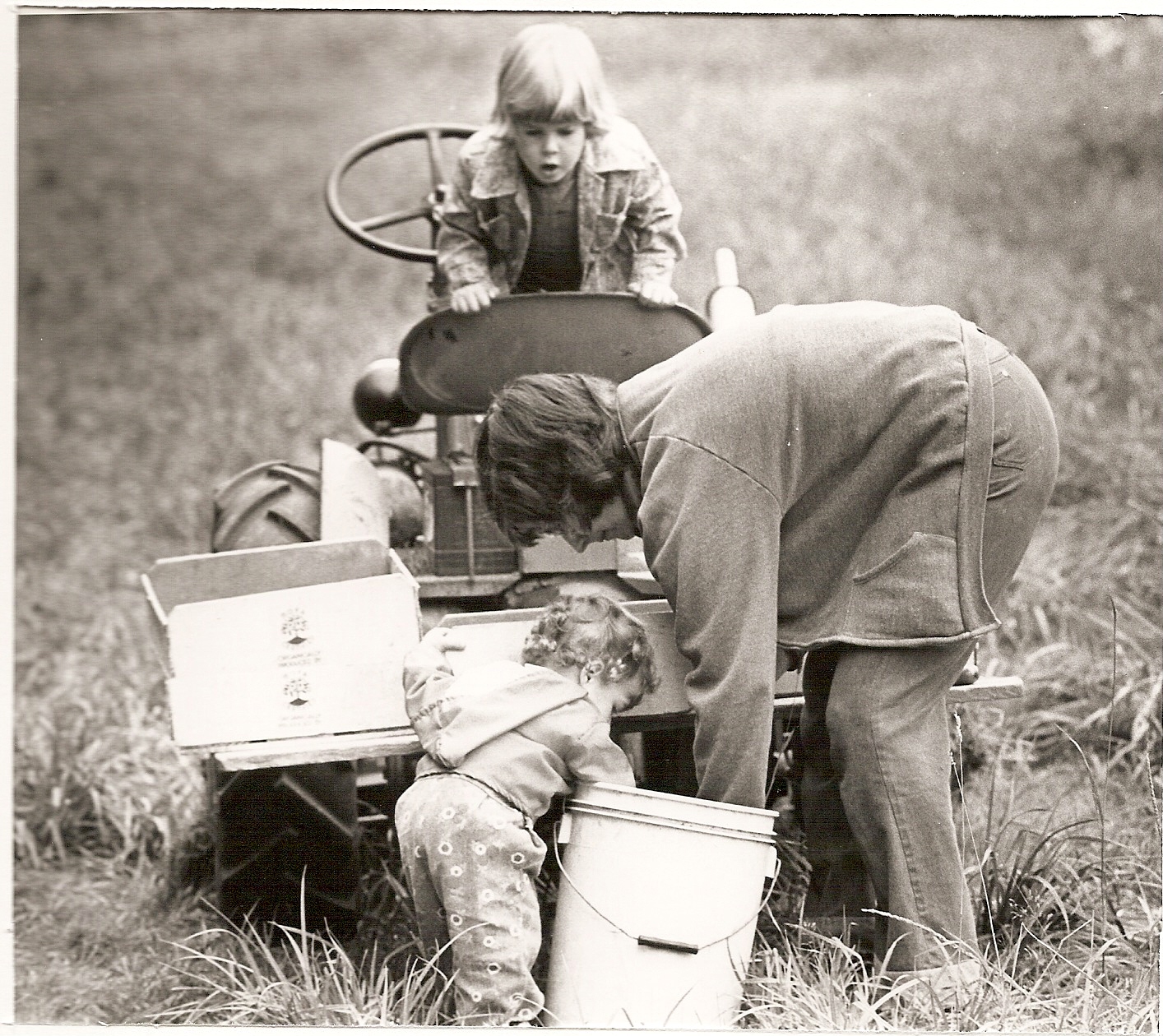
What has your legislative committee helped accomplish since its founding in 1981?
While MOFGA had been engaged in legislative actions from its inception, 1981 marked the beginning of a formal legislative committee. Initiatives included a “no-spray register,” organic food labeling and a campaign focused on the hazards of pesticide drift. Over the years, MOFGA has continued to focus on promoting legislation that is critical to organic farmers and gardeners, while supporting a healthy environment.
Some of the big wins have included the passage of country of origin and post-harvest chemical treatment laws in Maine in 1989, our role in the formation of Maine’s Board of Pesticides Control, and our ongoing and continued efforts to ensure the board upholds its mandate to reduce the state’s reliance on pesticides, including pushing for notification of pesticide applications and reduced-risk products. In 2014, MOFGA led the effort to pass a bipartisan bill to label genetically engineered foods in Maine. The bill would have gone into effect once five contiguous states passed similar bills, but unfortunately this requirement was preempted by activities at the federal level making labeling voluntary.
At the federal level, MOFGA is a founding member of the National Organic Coalition, which includes farming groups, cooperative businesses, and environmental and consumer groups committed to maintaining the integrity of the organic label.
In Maine’s most recent legislative session, MOFGA’s priority bill, which established the Maine Healthy Soils Program, passed with wide support. It creates a one-stop shop for farmers looking for soil health resources and information. Other notable achievements from the last session included a ban on the use of certain neonicotinoids for outdoor residential use, which protects pollinators, and a prohibition on the use of chlorpyrifos, a chemical highly toxic to human health.

In regards to advocacy and policy work, what’s on the table right now?
In our current work, MOFGA organizes its policy priorities under the following themes: climate and energy; farm viability; human health and the environment; organic integrity; organic research and education; and social justice and equity. Examples of our current policy goals are: minimizing and phasing out the use of synthetic pesticides; eliminating the use of genetic engineering in agriculture; increasing access to organic food; promoting incentives for climate-friendly agricultural practices; creating markets for organic producers; promoting fair and equitable international agricultural trade mechanisms; developing infrastructure for production, processing and distribution; establishing scale-appropriate food safety standards; conserving farmland; promoting safer alternatives to toxics in foods and consumer products; increasing farmer autonomy and consumer choice; defending the integrity of the organic label; and securing funding for organic research in the public interest. Our collective policy efforts will help people in Maine and beyond gain access to healthy, locally produced food, and an overall reduction of toxic chemicals in our food, air and water.
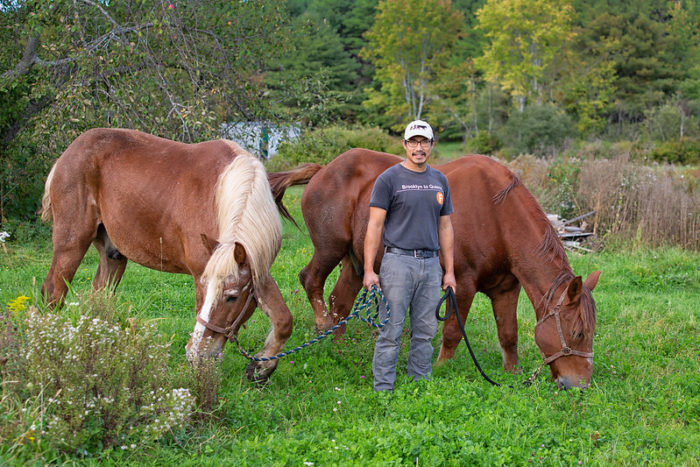
Does MOFGA get involved with policy work nationally or typically stays focused on a state level?
We work at the national, state and local levels. Some of our current national efforts are focused on maintaining the integrity of the federal organic standards and ensuring that federal agricultural policy supports small and medium-sized organic farms.
Current federal legislative efforts are focused on addressing the misinterpretation of the rules by a handful of organic certification agencies allowing for hydroponic production of organic crops and addressing an exploited loophole in the organic standards regarding origin of livestock, which allows for some very large farms to enter livestock into organic production in a method different than is in place on smaller family-scale farms, which is outside the intent of the law. We provide testimony at each National Organic Standards Board meeting, which is the advisory board for the USDA related to the organic standards, and participate in conversations at all levels to ensure the organic standards stay true to the intent that we and others began certifying to back in the 1970s. We also work with our representatives at the federal level to push for policies that address climate change and issues impacting farmers in the Northeast.
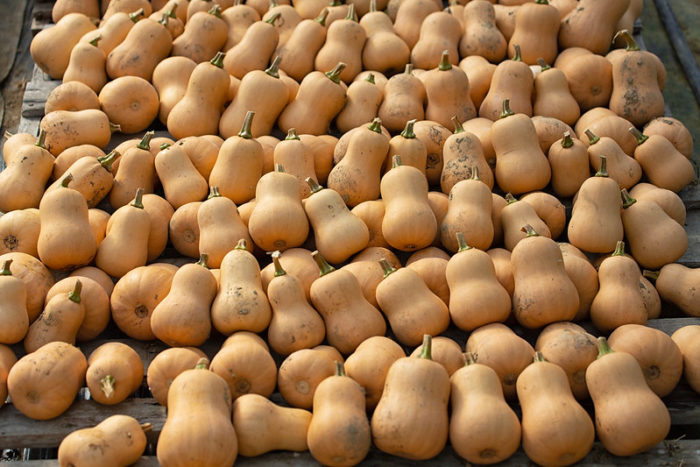
How is MOFGA upholding its commitment to creating a food system that is equitable for all?
This commitment weaves its way throughout all aspects of our work at MOFGA and takes several different forms. Some of the ways this commitment has manifested in our work in the past year include:
At the policy level, MOFGA provided testimony and support for the following bills in Maine’s most recent legislative session.
- An Act To Support Farms and Address Food Insecurity (fund to address food insecurity and provide nutrition incentives for local foods purchasing, matching contributions up to $25,000 for fiscal year 2021-22 only), which passed
- An Act To Protect Farm Workers by Allowing Them To Organize for the Purpose of Collective Bargaining
- Coming up in November, Maine citizens will vote on an Amendment to the Constitution of Maine To Establish a Right to Food, which MOFGA supports.
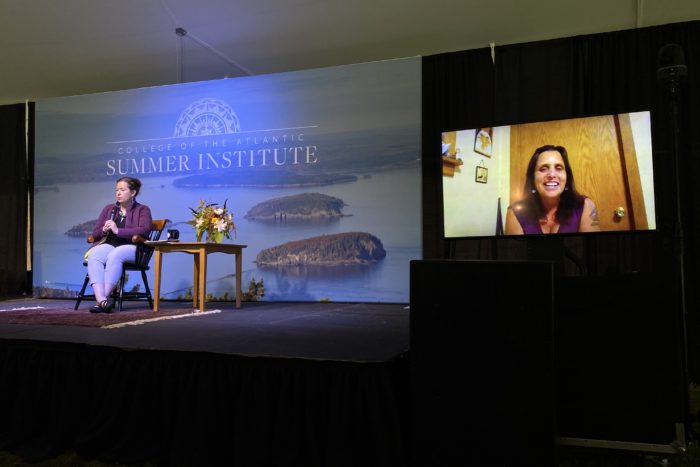
At the community level, we have over 12,000 members across the country and offer over 70 days of educational programming focused on food production, farming, and living sustainably, both online and in person each year, and work to make these available to people of diverse means and backgrounds including several events that are free for all to attend. We also participate in local gleaning and food security efforts throughout our county as part of the Waldo County Bounty coalition and administer the Maine Harvest Bucks program for Community Supported Agriculture (CSA) program participants. This program helps SNAP/EBT shoppers stretch their food budgets by offering them “bonus” local fruits and vegetables, which allows these customers to access more healthy food while also supporting local farmers.
Other recent efforts include opening up a portion of our grounds for use by an Indigenous-led land trust, Bomazeen Land Trust, for Indigenous food production; participating in a grant-funded initiative providing wellness microgrants to LGBTQ+ farmers, farmworkers and land stewards in in the Northeast; and providing scholarships to MOFGA programs for BIPOC individuals. And this past summer, as part of the College of the Atlantic’s Summer Institute program, I had the opportunity to be in conversation with Winona LaDuke about the importance of food sovereignty and traditional food systems for Indigenous peoples. Previously, Winona and I worked at the White Earth Land Recovery Project together.
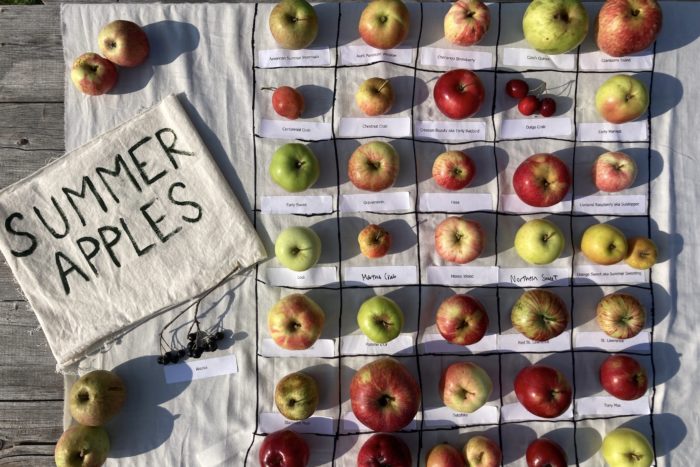
What is the Maine Heritage Orchard and why is it so special to the area? Where did the seeds come from for all the different apple varieties?
The Maine Heritage Orchard is truly unique. It is a passion project of longtime MOFGA volunteer and apple whisperer, John Bunker, whose life work has included saving heritage apple varieties. The orchard is a 10-acre preservation educational orchard located at MOFGA’s education center in Unity and is home to over 300 varieties of apples and pears traditionally grown in Maine, with more being added each year. The collection includes varieties from all 16 counties in Maine dating back as far as 1630. Until recently, many of them had been on the verge of extinction. Every apple seed is unique and the apple’s biology makes propagating via scionwood key to preservation efforts. Apple sleuths have traveled all corners of the state working to identify old trees and collect scionwood, which is then grafted onto rootstock to establish a new tree. Many of these varieties are also distributed at MOFGA’s annual seed and scion exchange each March.
This work is important and speaks to many people who remember the taste of a favorite apple variety from their childhood, but can’t find that variety in today’s grocery stores. Similar to other crops, this is because commodity growers that are shipping goods across the world grow varieties which share specific characteristics suitable for that type of food production. Without stewardship and preservation, many traditional varieties of all types of crops are at risk of extinction. The heritage orchard is a buffer against this trend with apples and a model for what preservation of genetically diverse crops can look like, which is so important as we deal with emerging issues and pests related to our changing climate and world.
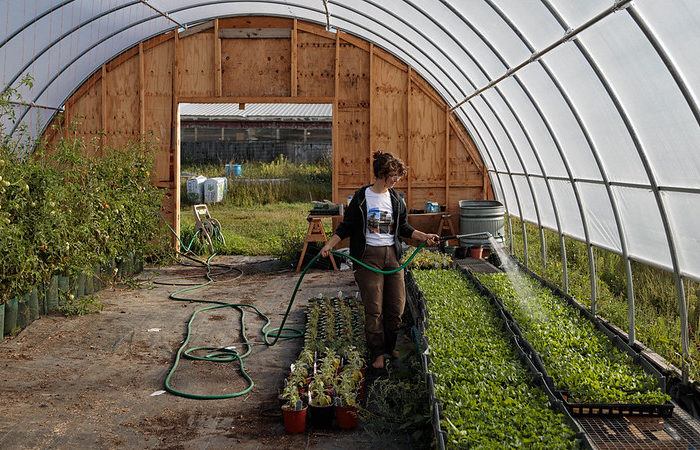
What does your work on genetically engineered food labeling entail?
Genetic engineering is not permitted in organic production and MOFGA has worked tirelessly to both prevent contamination of organic products from genetic engineering and ensure that consumers have a right to know what products are produced with genetic engineering. Policy efforts at the state level regarding these priorities have spanned over 30 years, and unfortunately continue to be an uphill battle with any victories being relatively short-lived. Over this period of time we’ve fought for moratoriums, bans, restrictions and labeling on genetic engineering and each time powerful industry forces have proved formidable. The social science behind this issue is clear, consumers want to know what is in their foods. At this time, the best way for consumers to ensure they are not eating products created with genetic engineering is to purchase certified organic, which prohibits the use of genetic engineering.
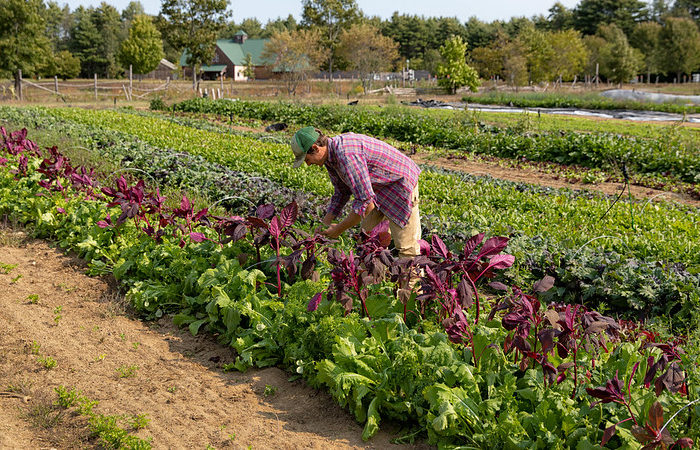
How did MOFGA get involved with El Salvador and what is being done there?
MOFGA’s work with El Salvador was driven by volunteers Karen and Paul Volckhausen of Happytown Farm who had established relationships in El Salvador and recognized a connection between MOFGA’s work and grassroots efforts related to sustainable agriculture in El Salvador. MOFGA’s El Salvador Sistering Committee maintains a relationship between MOFGA and two Salvadoran grassroots organizations working toward sustainable agriculture. The committee explores issues such as organic certification, free trade, marketing, mining and climate change that affect farmers in both countries. Several delegations from Maine have visited El Salvador, and delegates from El Salvador have come to Maine to tour farms and participate in the Common Ground Country Fair.
The MOFGA-El Salvador Sistering Committee works closely with the U.S.-El Salvador Sister Cities (USESSC) network, a grassroots organization of U.S. citizens and residents who have ongoing partnerships with small rural communities in El Salvador. Those partnerships began in 1986 as a citizen-based response to the U.S. intervention in El Salvador’s civil war. Today, 17 U.S. sistering groups are paired with Salvadoran communities or organizations in six of El Salvador’s 14 departments.
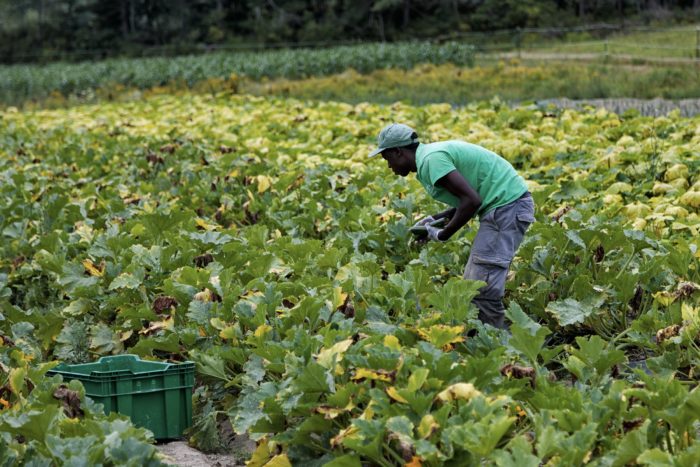
What are the top climate-related challenges farmers are facing today and what can we do about it?
Climate change is already presenting tangible challenges to Maine’s farmers—and farmers everywhere. Unpredictable extreme weather is perhaps the biggest challenge. Extreme weather events that include things like short intense periods of rain and flooding events followed by drought or extreme cold followed by extreme heat cause stress to crops and livestock. Native perennial crops, such as maple trees and wild blueberries, have adapted to the areas where they grow over millennia and cannot easily adjust to climate variations. One of the reasons that MOFGA’s top policy priority this year was the establishment of the Maine Healthy Soils Program is because healthy soils have both the ability to help farmers mitigate the impacts of extreme weather while also sequestering carbon, and can be a part of the climate solution.
Consumers can seek out food produced by local, organic producers and eat seasonally when possible. This lessens food miles contributing to carbon emissions and supports farms who are reducing their environmental impact by producing organically.
